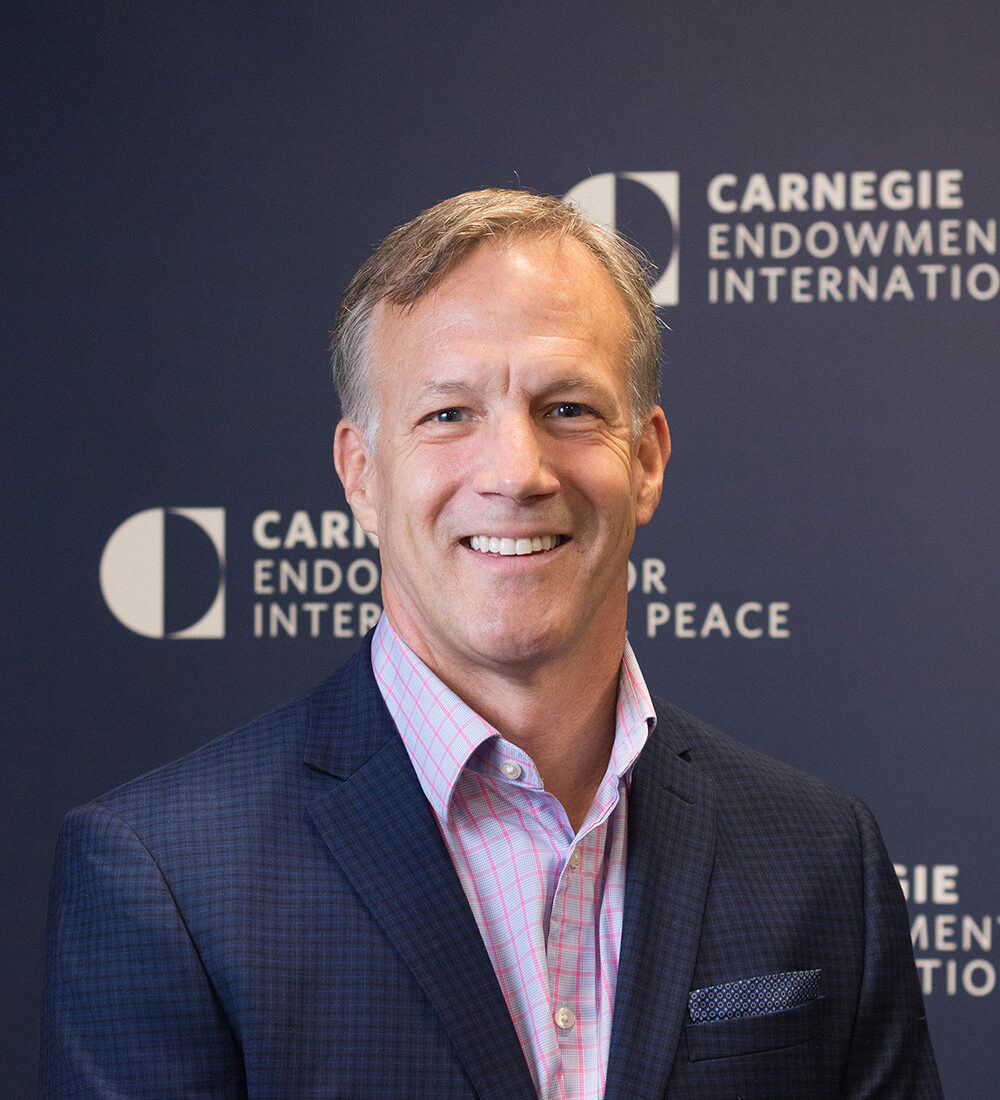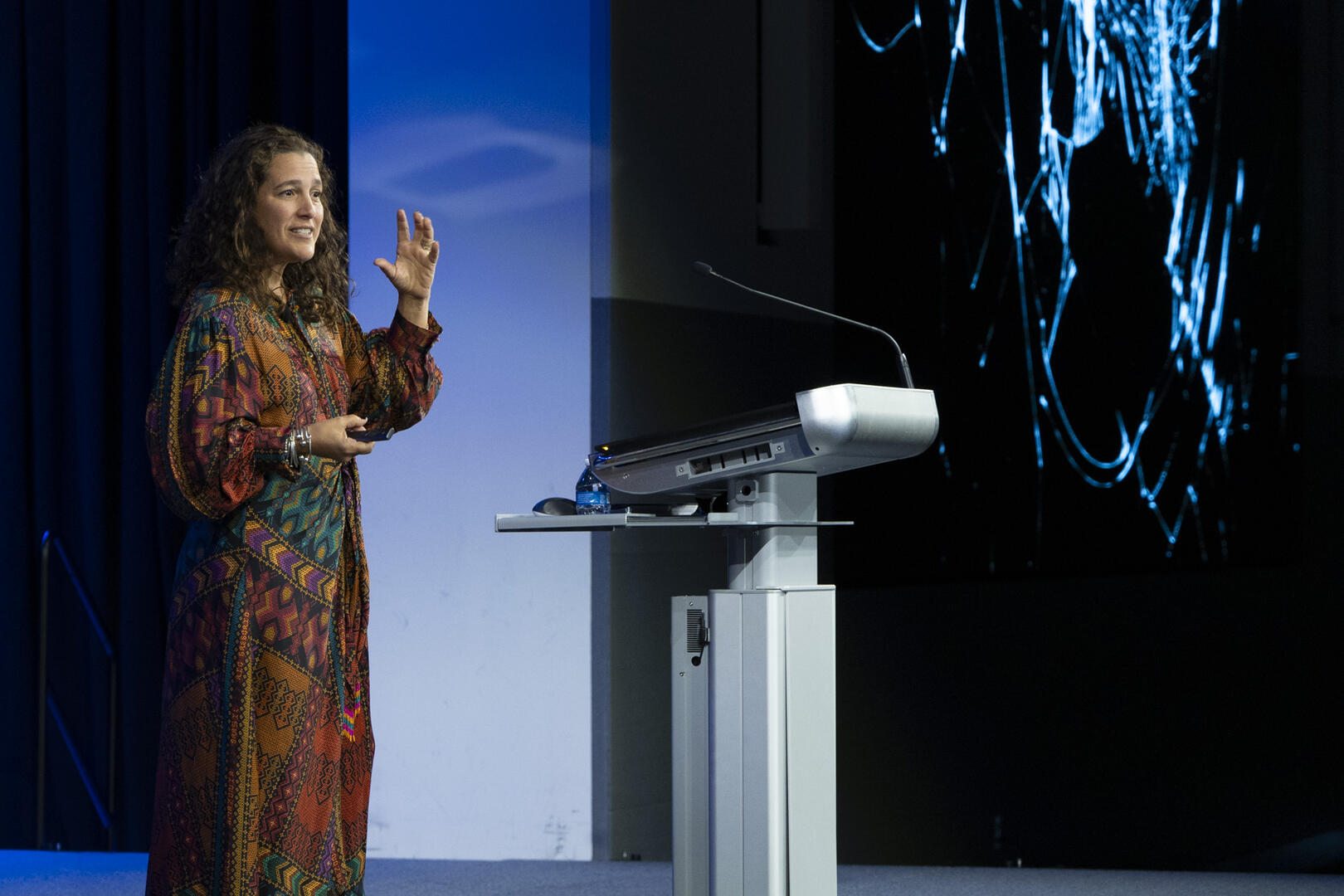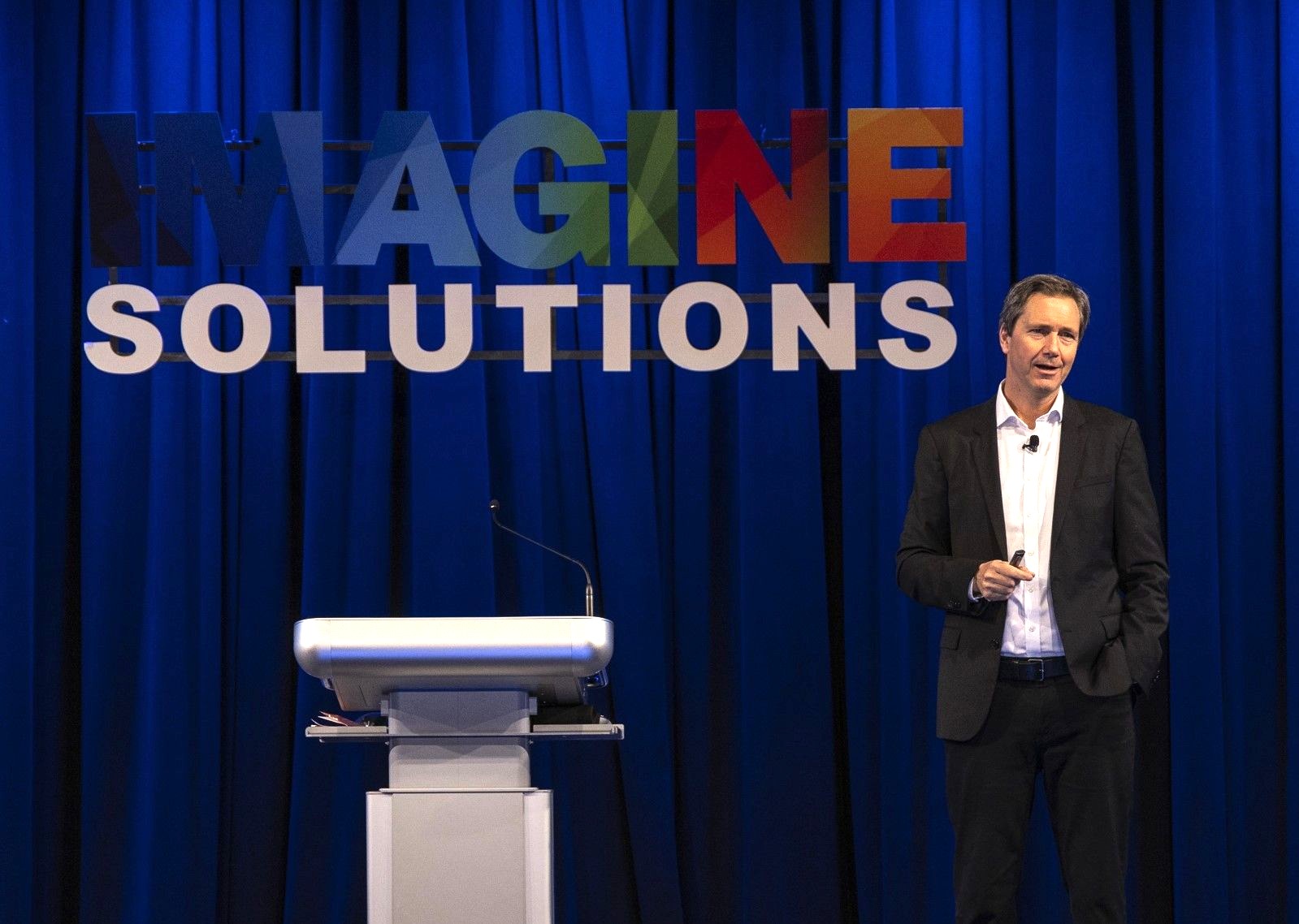Changing Global Order in a World of Chaos
00.00
[Music] all we live some say in a world of chaos today steuart Patrick is an expert on global order at the prestigious Carnegie Endowment for International Peace here today to explain the shifting Global Order what it means and how we might thrive in it please Welcome to our stage Stuart Patrick on the impact of changing Global Order in a world of chaos have [Music] fun uh my friends um I'm afraid that uh we need to talk about the elephant in the room um I know that many of you came here here expecting to hear from Sir
01.02
Patrick Stewart uh Sir Patrick is of course a legend of stage and screen and the bane of my existence uh I actually changed my Facebook page to his picture for a while just I gave up but instead of uh Jean Luke Picard or King Le you're going to be stuck with me for the next uh 20 minutes uh rather than uh Broadway or Hollywood uh I work in one of the oldest think tanks uh the Carnegie Endowment for International Peace was set up in 1910 and you might say to yourself inauspicious timing for a think tank devoted to uh world peace and preventing War uh but despite uh the little hiccup of World War I uh we've been plugging away ever since uh trying to improve International cooperation now Randy antic gave me um quite instructions clear instructions for the talk he basically said explain
02.00
the Dismal state of the world but remember remember to keep them smiling at the end we need them to pay to come next year and uh so on Thursday um the president will be delivering his State of the Union um I have the enviable job of giving the state of the world and there's no point in sugar coating it the state of the world from many perspectives looks pretty bad um here are a few recent headlines um we Face a crisis the world is in disarray the Earth is becoming uninhabitable we Face Another Cold War it's inevitable that we'll have one with China covid was just a prequel we could have had a couple of the earlier talks and say AI will eventually kill us but any one of these would demand our attention and yet we have to address so many of these crises at once unfortunately multilateralism is a wall and uh American leadership is uncertain
03.02
one of the points that I want to leave you with is really the thesis that stable World orders do not occur on their own they depend on shared norms and rules and eventually shared law but they also depend on Powers that are willing to enforce and um serve as custodians of this order um sadly many Global institutions are no longer fit for the purpose there were many of them were created at the end of the second World War and um they they're passed their cell by date uh in addition um uh America's own commitment to multilateralism and to International institutions is uncertain as at best um in in 1945 the United States did something that was really historically unprecedented it you it emerged from the second world war obviously with tremendous might and it used that might not for Imperial exploitation but to actually try to lay the institutional foundations for an open rule-based International System to in which all
04.01
countries could at least in principle join um and that uh it it created institutions like the United Nations and ultimately institutions like NATO and those institutions because they had an egalitarian ethos in in many respects they actually helped legitimate American power that Vision became the organizing principle for the Free World that helped defeat um the Soviet Union during the Cold War unfortunately the US uh is no longer a reliable leader uh in 2016 the American people elected a president who did not believe in the tenants of American internationalism and the precepts of American internationalism and across the political Spectrum there's much more skepticism than there used to be that we have any stake in global engagement and there's a a a a a tendency that I would argue to hunker down and simply try to uh handle our own Affairs and I think that this crisis of American internationalism could not come at a worst time because the order that the United States help create is on the
05.00
ropes and I want to look at a few reasons why first geopolitics and War are back the end of the Cold War as you all remember was a time of he optimism right the end of History Etc it was optimism about um democracy and globalization um International cooperation the new world world order as George H W bush called it as recently as a decade ago Barack Obama could say that the age of great power competition was a thing of the past unfortunately neither of the two gentlemen in this photo got that memo um and the East West antagonism has roared back you see this obviously most obviously um in the situation in Ukraine you obviously see it in the cross straight tensions with respect to Taiwan which were featured in who controls the future of AI U by an earlier speaker um the incidence of war is also sharply sharply up uh last year there were more than 180 violent conflicts around the world of note and
06.02
um of course Gaza being one of the most um uh worrisome and tragic um uh situations that we see today meanwhile the UN un Security Council uh according to un Secretary General uh Antonio gu Gutierrez is gridlocked in col in colossal dysfunction um relations have also deteriorated between the countries of the so-called Global South that is Major emerging countries and also developing countries uh which want which don't regard the wealthy world as having really any um willingness to make room for them uh or to to pay attention to their concerns and they have a point um now most of these countries if you look at Brazil and India for instance are not rural breakers on the order of Russia but they're tired of being rule takers and they want to participate as rule makers and the question is will Advanced uh countries let them the second issue
07.02
that I want to the second Trend that's really worrisome is that the backlash against globalization is real we used to believe that hyper globalization would bind Nations ever closer together that it would lift all boats and that it would bolster Global solidarity that dream is basically dead at least for the time being and it's been buried by the global financial crisis us China decoupling covid-19 uh the aftershocks of the war in Ukraine citizens and governments around the world are turning their back on the free flow of goods and also the free flow of capital and are engaging increasingly in uh nationally focused industrial policy including in the United States now there are many reasons for this but the one that I want to talk about is surging economic inequality now recent decades have seen huge wealth creation and many of us in this room have benefited from that wealth creation but it is remarkably concentrated the graph here shows the rise in income inequality in the United
08.00
States uh over the past Century and you can see that we're at levels that uh right before basically equivalent to right before the um the this the Wall Street Crash um in the 19 in the Waring 20s um I also but it's not just limited to the United States um earlier I spoke about uh the elephant in the room here's another elephant right um this is one by The Economist Bronco mil milanovic and it shows the relative gains from Glo globalization across all income groups uh income levels um around the world the dip in the trunk that you see represents the benefits that accured or should I say did not acre to the lower middle classes in wealthy economies this narrow strip the narrow strip that you see sort of on the right the trunk going up now those are the benefits that went to the already wealthy in wealthy countries now I will leave it to philosophers and Vickers to pass ethical judgments on this pattern but I will say as a
09.00
political scientist that this is a recipe for populism and instability of so of the of the sort we've seen in so many Advanced Market democracies around the world the third major Trend that I want to call attention to is the fact that we are at war with The Living Planet between 1990 and 2020 there was incredible progress against poverty um the the percentage of people who lived in extreme poverty fell from 36% to 99% of the global population that is incredible any way you look at it unfortunately much of that success came at the expense of the natural world and the bill is coming due humans are now the biggest Force shaping the Earth system from the atmosphere to the oceans last year which as you know was the hottest on record we blew by the Paris agreement Accord that the the target of holding the rise in average global temperatures to no more than 1.5° C 2.8 de F above pre-industrial
10.02
levels and there is no end in sight uh as far as that's concerned as Florida residents you already feeling the heat literally um hurricanes are getting more violent sea level is rising Coral is bleaching just off the coast here right just off the beach the oceans are warmer than they have been in 100,000 years at that point 100,000 years ago they were also 20 to 30 feet higher than they are today this is not a very high State I've noticed um they are also 33% more acidic 33% more acidic than they were 200 years ago at the start of the Industrial Revolution that is quite something um and meanwhile critical components of the earth system from Antarctic Ice shelves uh and and the Arctic as we saw uh earlier um and also the Amazon are approaching critical tipping points that would then accelerate climate change biodiversity is also collapsing around the world jeopardizing many of the benefits that we get from healthy
11.00
ecosystems and species um like the bees that pollinate our crops or um the mangroves that nurture our Fisheries here's a shocking statistic 10,000 years ago humans represented 1% of mammals by biomass by their total weight right today that's been flipped humans and our domesticated animals represents 99% of mammals by biomass in Wild species are 1% um this is not these these these biodiversity statistics are not necessarily they're not a they're not about tree hugging or whale hugging they're really they're they're about what's in your wallet according to the folks at the world economic Forum the guys at Davos fully 50% of global GDP depends heavily on the benefits that we get from nature we call it natural capital and when those services are in Decline we get a lot poor
12.01
um so let me move on to our fourth challenge the fourth challenge is a demographic mismatch the world is both too old and Too Young this is this is Trends in US birth rates a year ago of course Humanity topped 8 billion people up from just 5.3 billion in 1990 it's quite dramatic rise but in the wealthy world of course what we're much more preoccupied by these days is De mining population um because our societies are aging really fast present company excluded you guys look fabulous um in Italy the average fertility rate that has births per woman is 1.24 now in South Korea it is 84 meaning that the South Korean population will be cut in half by the end of this Century if those trend lines don't change and China of course has
13.00
already started declining in in terms of its size many aging countries face a fiscal cliff they don't have enough workers to cover the expenses of the pensioners that are living longer and thankfully healthier lives meanwhile in Africa the continent will see its population double by 2050 when one in four people will be African which is quite remarkable um now this could be a boon if African African countries can harness this demographic dividend now the aspirations of African youth are Skyhigh and it's becoming an incredible cultural Force it's it's quite fascinating to see what's going on there there's a lot of Hope a lot of entrepreneurial energy but there's also a history of either the world economy or local governments not exactly uh helping um make sure that they can harness a demographic dividend um so there's a obvious um obvious way to handle this mismatch right you would
14.00
try in general to increase legal migration from the world's poor but young young countries to the world's older um but um and richer countries but of course the the politics of that are almost totally toxic in in so many parts of the world so then the final um the final um uh issue that I want to talk to you about picking up on many of the things that have been said today is the risks from techn ology um as the Geniuses uh who preceded me and I mean Geniuses who preceded me uh made clear we live in a Promethean age you know every day we have new G whiz Technologies from you know AI to nanotech synthetic biology to Quantum Computing and the pace of innovation is leaving much of us many of us breathless or if you're like me on the phone to your kids asking where the on button is um but it's also leaving though I think governments in the dust uh and that is a
15.00
problem because if the new technologies can do amazing things we've already gotten some sense of the the incredible risks that they pose as well as ethical dilemmas consider Ai and biotech for instance both of them are inherently dual use that means they can be used for good or for ill to educate or misinform uh to develop a vaccine or the latest super buug um and two and the fact is that the barriers to entry are really going down which again is good but also bad two decades ago it cost $2.7 billion do to sequence the first human genome today it can be done for $600 and you can create new life forms in your basement or it's probably your teenagers doing it but uh it's quite remarkable I'm not going to play this um deep fake um uh from um that that um Anderson Cooper of CNN um showed on CNN because it pales in comparison to some of the stuff that we saw from Tom Graham and everybody else um that particularly when you get to the the the total weirdness
16.00
of the the text image generation uh moving images are really remarkable but even when it's used for Noble purposes the unintended consequences uh are inevitable like a pathogen escaping from a lab or hallucinate nations of advanced Ai and I really do want to stress just picking up on um I guess it was Dan's talk on um the the Strategic implications of all of this AI will revolutionize and conceivably profoundly disrup cor upt um nuclear proliferation and arms control particularly between the United States China and and Russia over the past um year tens of thousands of technologists signed uh an open letter warning that AI poses existential threats to humanity we haven't really talked about this that much it can seem kind of far out there but the private um these technologists warned that private labs are locked in an outof control race to develop ever more power ful digital Minds that no one not even their
17.01
creators can understand predict or reliably control some people find this exaggerated but some people believe that that the the the decision point about about once artificial general intelligence really begins to take over as to you know whether or not humans will be able to control it or not is a real thing and it's something that has been that people are working on at the multilateral level I I want to say that given these trends that I've described would be really easy to fall into apocalyptic despair um but this of course is the imagin solution Summit not the Debbie Downer Summit so let's see if we can come up with something um well I cannot propose uh any uh breakthrough Miracles I do want to suggest several principles for a more hopeful future principles uh that can advance uh International cooperation so that we can survive and and even thrive on what is becoming a shrinking Planet here are the first six of them um the first and this may sound prosaic
18.03
the first is to remember that we're all in this together um I think this Bears repeating uh morally and ethically and not least but 400 years ago this very year the poet John Dunn wrote his famous words no man is an island and those words have never been more true the world is full of problems without passports as the pandemic showed us this is so we're more interconnected than ever and this is true epidemi epidemiologically but it's also true socially culturally politically ecologically demographically and technologically it's also true morally we cannot afford to be indifferent to what occurs abroad the second General point is the United States needs to grow up one of the touchstones of American political culture for a long time has been the um
19.02
sort of thesis of American exceptionalism it's a touchstone in American political culture the belief that we're unique among nations that we have our own special sauce I think that this conviction is beguiling and it is not entirely incorrect however it can Inspire some very dangerous oscillations in US foreign policy uh it can have have us oscillate between idealistic Crusades to make remake the world in our own image to isolationist impulses to retreat from an alien world I think we need to temper this instinct to avoid both overreach as we saw in Afghanistan and also chaos by creating vacuums others will fill which we also saw in Afghanistan we don't have the luxury of saying stop the world I want to get off or slinking into a shell like some hermit crab we need to commit to enduring and realistic engagement the third principle is that we need to learn to compartment I it's really tempting when you we're dealing
20.00
with China in particular to take a consistently hard line as we did with the Soviets during much of the Cold War but we can't afford to do so because we are so much more entangled with the Chinese than we ever were with the Soviets we rely on China to help Ma Finance our massive debt to arrest climate change to prevent nuclear proliferation we need to cooperate them on with them on some issues and we need to compete and deter on others the same is true for emerging Powers even ones like India and U Brazil brail which because they are they cling to non-alignment often enrage us we just need to get more comfortable with like many relationships these days people ask you how your relationship is the answer is it's complicated fourth we need to make room at the top um the Us and other Western Powers need to make space for Rising powers and developing countries in bodies like the UN Security Council and international monetary fund which were created when many of these countries were colonies it's hard to give up control but failing to make reasonable ad adjustments now will simply undermine
21.01
the legitimacy of these um and lead to Major crisis the unipolar moment is over instead of doubling down at on Primacy at enormous expense the US needs to reinvent multilateralism for the coming multi-polar moment number five is order alak cart and not just prefs what I mean there is look it's really hard to reform major International institutions formal treaty based institutions it can be very hard to do that that's the prefix menu so what you have to do is you also have to get Nimble diplomatically and you've actually seen previous administration Trump Administration did it um Biden Administration did it um is basically pull pulling together pickup teams for particular issues so for instance one of the big initiatives that was launched under uh Trump but is continuing under the Biden Administration is the Artemis Accords it's the next phase of lunar exploration and as long as countries sign up to these principles they can be part of the gang and that way get the high principles you deal with the high
22.00
principles um first uh and it's quite promising the sixth point is to pursue growth but with Equity rescuing globalization will require building a world economy that frankly rewards labor as much as capital yes many critical decisions are that will be taken will about levels of Taxation or about safety nets are going to be domestic ones but rules governing the global economy can help enable broadly shared gains the most the best shared prosperity in American history were the first two decades after 1945 and they were also ones where trade rules benefited lower classes much more than they do now and countries had more flexibility to pursue Progressive social policies than they do now let me go to the last couple here seventh don't abandon sovereignty but reimagine it this is a topic of a book that I wrote the sovereignty Wars in a few years ago a huge obstacle to International
23.00
cooperation is the Nationalist myth that simply by joining multilateral organizations or ratifying International treaties we somehow sacrificing sovereignty in fact as long as it's done constitutionally it is an expression and an embodiment of sovereignty when it comes to climate change pandemic disease or nuclear proliferation the only way to put America First is actually to join with others in common Solutions the only other alternative is to try alone at huge expense with dubious results where you don't actually affect your fate as a nation finally we need to learn to govern the world as if the Earth mattered you may remember I I certainly do your first Atlas that you ever got as a kid right and I was always kind of puzzled by the two sort of different maps that you saw in the beginning right the first was the Big Blue Marble map right the Earth from space it was basically the planet it with its with with No Boundaries really you know a
24.02
biogeophysical whole with natural processes and the second one almost immediate laughter was was the geopolitical Earth with borderlines and Capital Cities our environmental emergency is a collision between these two worlds a living planet that obeys no natural boundaries and a political Planet divided up into 193 Sovereign Nations except for Antarctica we can close this Gap but only if countries accept a solemn obligation to safeguard nature including parts of the planet like the Amazon upon which all of us depend we also need to invest in our Earth's natural Capital habitats ecosystems species in the same way that we do human financial and physical capital it's an it needs to be on our balance sheets and we need to safeguard it now I want to leave you with a final thought draw drawing on my interest in human evolution uh more than
25.01
30 years ago I got to spend a couple of Summers uh looking for fossils in ulivi Gorge Tanzania in the Great Rift Valley the Cradle of humanity here I am age uh 23 and undoubtedly a lot more fit with a replica of one of our cousins on the Human family Tree Australopithecus Boise ey he's a robust looking fellow but believe it or not a peaceful vegetarian our ancestors lived alongside this guy but they evolved bigger brains this gave them the capacity to think and to work in think tanks uh and it also helped them invent tools like these beautiful hand axes that amazingly still litter the landscape today if you walk there you will see them it's a mind-blowing they're a million years old along the way we developed language and the and complex social behaviors as well as capacities for empathy and compassion and these faculties allowed our
26.00
ancestors to survive in a hostile environment and this is a story that has been repeated time and again over the last two million years the story of humanity is about our ability as a species to triumph over adversity often Against All Odds by using our tools and by working together it hasn't always been pretty but it we've managed so far to survive uh often albeit in the words of um the play by Thornton Wilder by the skin of our teeth um on that note of Hope many thanks for your attention and going back to uh Jean L bicard may you live long and prosper [Music] thank







